Search
Remove Ads
Advertisement
Search Results
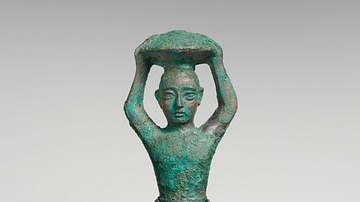
Definition
Shulgi of Ur
Shulgi of Ur (r. 2029-1982 BCE) is considered the greatest king of the Ur III Period in Mesopotamia (2047-1750 BCE). His father was Ur-Nammu (r.2047-2030 BCE), who founded the Third Dynasty of Ur, and his mother was a daughter of King Utu-Hegal...
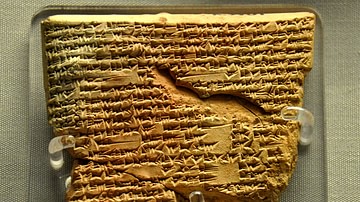
Article
Sargon and Ur-Zababa
Sargon and Ur-Zababa is a Sumerian poem, date of composition unknown, relating the rise to power of Sargon of Akkad (r. 2334-2279 BCE), founder of the Akkadian Empire. The work is classified as a Mesopotamian folktale, relying on motifs such...
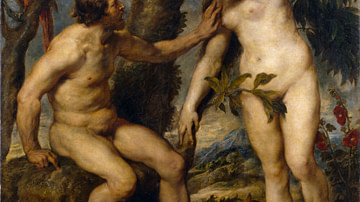
Article
The Christian Concept of Human Sexuality as Sin
In the ancient world, human sexuality was crucial for the survival of the tribe and clan as well as pleasurable, a gift from the gods. Thousands of native cults emphasized fertility through rituals and prayers, and ancient gods were depicted...
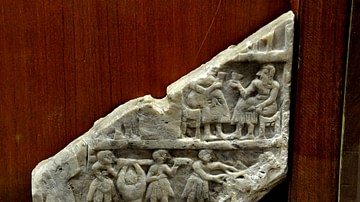
Article
Daily Life in Ancient Mesopotamia
Daily life in ancient Mesopotamia cannot be described in the same way one would describe life in ancient Rome or Greece. Mesopotamia was never a single, unified civilization, not even under the Akkadian Empire of Sargon of Akkad (the Great...
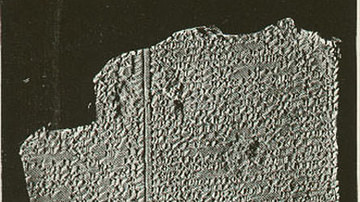
Definition
Literature
Literature (from the Latin Littera meaning 'letters' and referring to an acquaintance with the written word) is the written work of a specific culture, sub-culture, religion, philosophy or the study of such written work which may appear in...
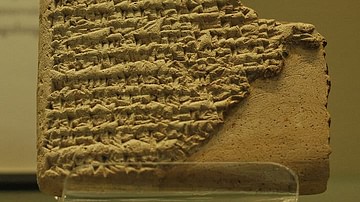
Article
The Legend of Sargon of Akkad
The Legend of Sargon of Akkad (c. 2300 BCE) is an Akkadian work from Mesopotamia understood as the autobiography of Sargon of Akkad (Sargon the Great, r. 2334-2279 BCE), founder of the Akkadian Empire. The earliest copy is dated to the 7th...
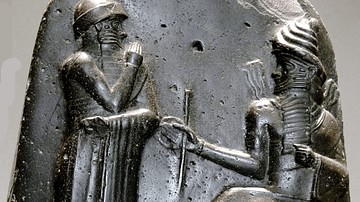
Definition
Hammurabi
Hammurabi (r. 1792-1750 BCE) was the sixth king of the Amorite First Dynasty of Babylon best known for his famous law code which served as the model for others, including the Mosaic Law of the Bible. He was the first ruler able to successfully...
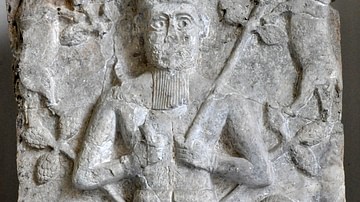
Article
The Mesopotamian Pantheon
The gods of the Mesopotamian region were not uniform in name, power, provenance or status in the hierarchy. Mesopotamian culture varied from region to region and, because of this, Marduk should not be regarded as King of the Gods in the same...
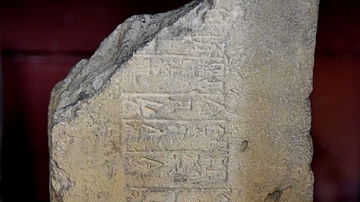
Image
Mud Brick Stamped with the Name of King Amar-Sin
This baked-mud brick was stamped with the name of the Neo-Sumerian king Amar-Sin (also spelled Amar-Suen; his name was previously misread as Bur-Sin). The cuneiform inscription mentions the king's making of a great vessel or laver, which...
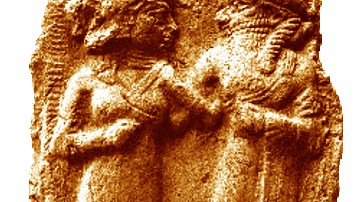
Article
The World's Oldest Love Poem
The world's oldest love poem is The Love Song for Shu-Sin (c. 2000 BCE) composed in ancient Mesopotamia for use in part of the sacred rites of fertility. Prior to its discovery in the 19th century, and its translation in the 20th, the biblical...